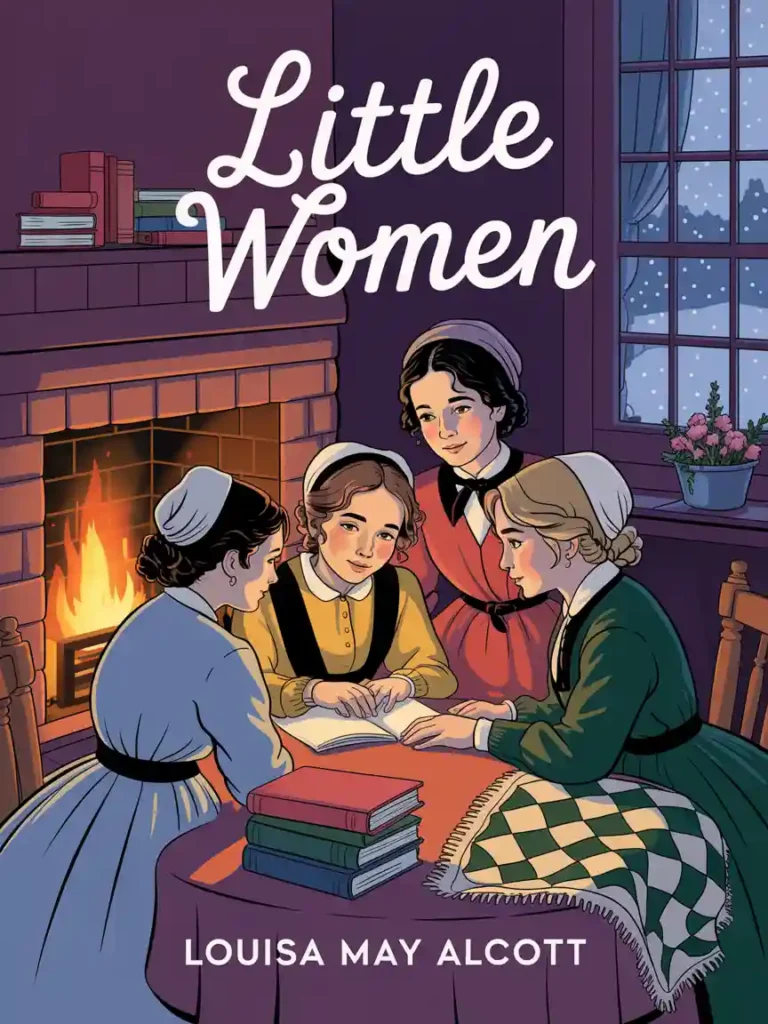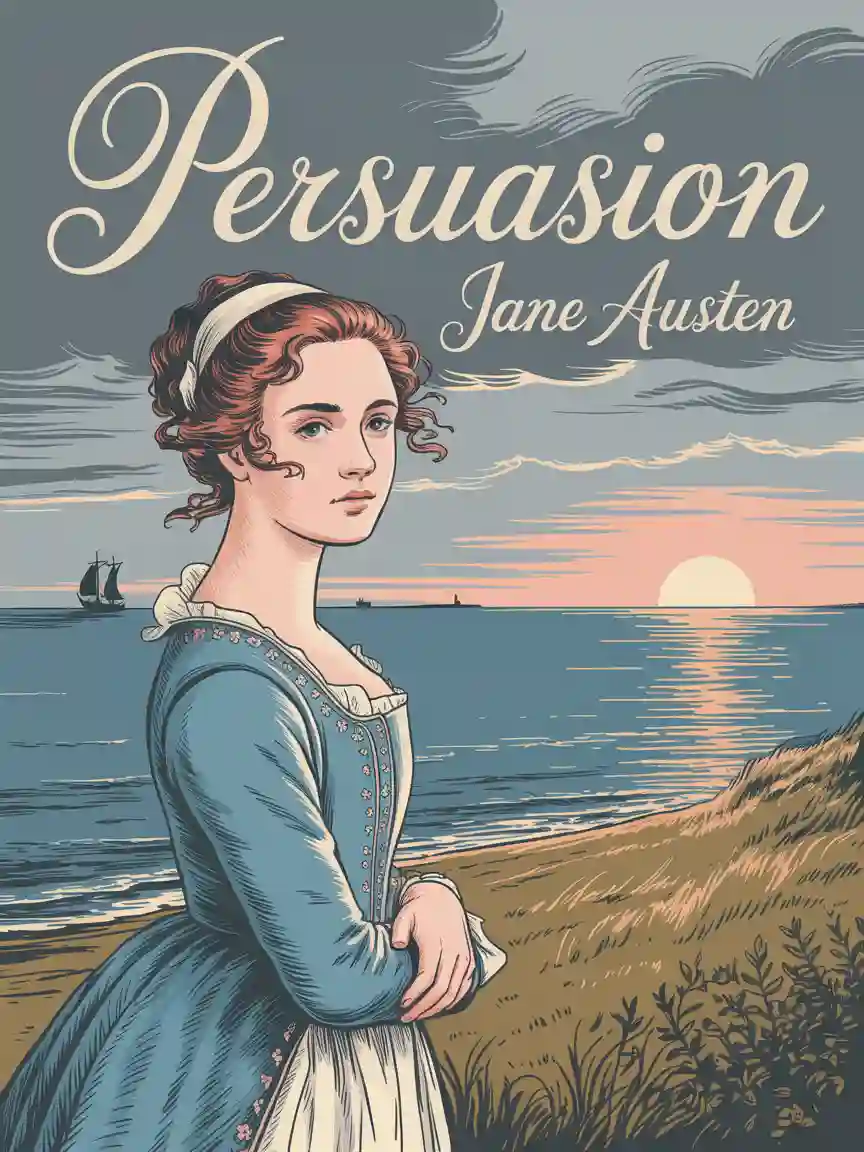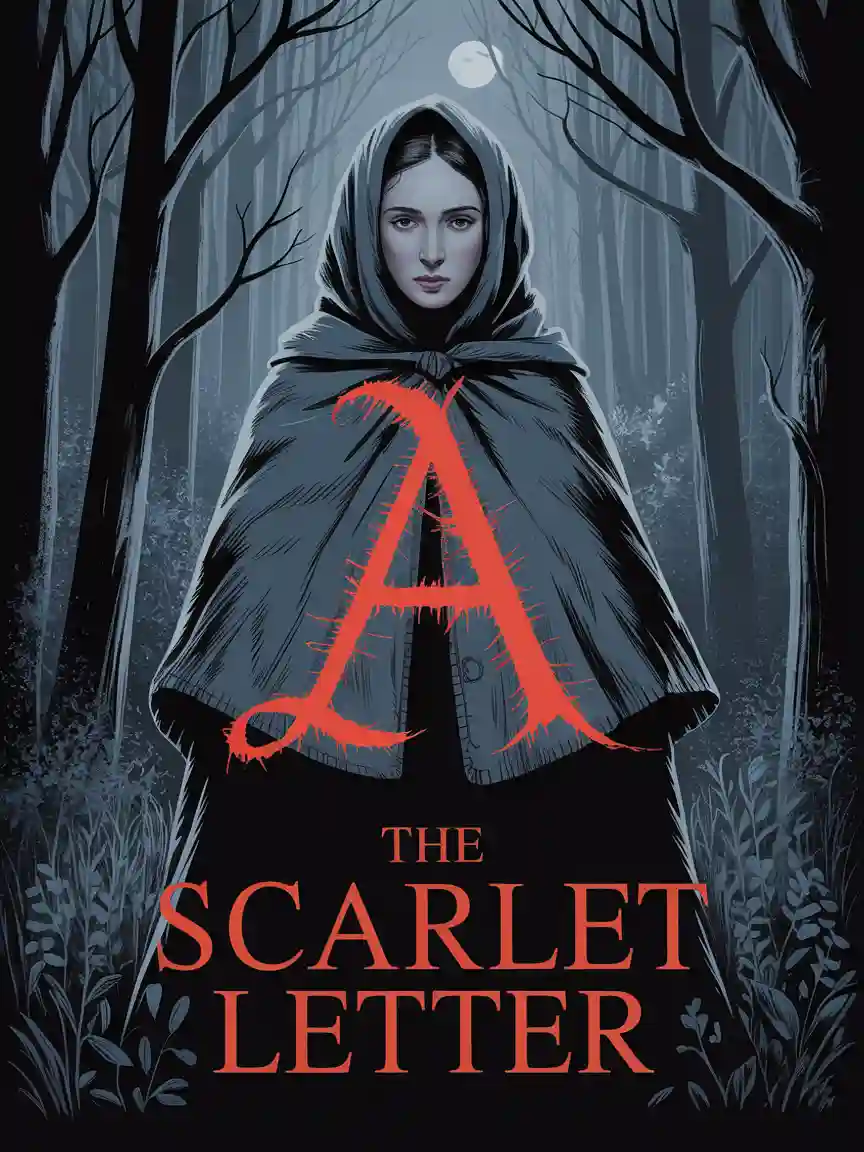CHAPTER TWENTY-TWO
PLEASANT MEADOWS
Like sunshine after a storm were the peaceful weeks which followed. The
invalids improved rapidly, and Mr. March began to talk of returning early in
the new year. Beth was soon able to lie on the study sofa all day, amusing
herself with the well-beloved cats at first, and in time with doll’s sewing,
which had fallen sadly behind-hand. Her once active limbs were so stiff and
feeble that Jo took her for a daily airing about the house in her strong arms.
Meg cheerfully blackened and burned her white hands cooking delicate
messes for ‘the dear’, while Amy, a loyal slave of the ring, celebrated her
return by giving away as many of her treasures as she could prevail on her
sisters to accept.
As Christmas approached, the usual mysteries began to haunt the house,
and Jo frequently convulsed the family by proposing utterly impossible or
magnificently absurd ceremonies, in honor of this unusually merry
Christmas. Laurie was equally impracticable, and would have had bonfires,
skyrockets, and triumphal arches, if he had had his own way. After many
skirmishes and snubbings, the ambitious pair were considered effectually
quenched and went about with forlorn faces, which were rather belied by
explosions of laughter when the two got together.
Several days of unusually mild weather fitly ushered in a splendid
Christmas Day. Hannah ‘felt in her bones’ that it was going to be an
unusually fine day, and she proved herself a true prophetess, for everybody
and everything seemed bound to produce a grand success. To begin with,
Mr. March wrote that he should soon be with them, then Beth felt
uncommonly well that morning, and, being dressed in her mother’s gift, a
soft crimson merino wrapper, was borne in high triumph to the window to
behold the offering of Jo and Laurie. The Unquenchables had done their
best to be worthy of the name, for like elves they had worked by night and
conjured up a comical surprise. Out in the garden stood a stately snow
maiden, crowned with holly, bearing a basket of fruit and flowers in one
hand, a great roll of music in the other, a perfect rainbow of an Afghan
round her chilly shoulders, and a Christmas carol issuing from her lips on a
pink paper streamer.
THE JUNGFRAU TO BETH
God bless you, dear Queen Bess!
May nothing you dismay,
But health and peace and happiness
Be yours, this Christmas day.
Here’s fruit to feed our busy bee,
And flowers for her nose.
Here’s music for her pianee,
An afghan for her toes,
A portrait of Joanna, see,
By Raphael No. 2,
Who laboured with great industry
To make it fair and true.
Accept a ribbon red, I beg,
For Madam Purrer’s tail,
And ice cream made by lovely Peg,
A Mont Blanc in a pail.
Their dearest love my makers laid
Within my breast of snow.
Accept it, and the Alpine maid,
From Laurie and from Jo.
How Beth laughed when she saw it, how Laurie ran up and down to bring
in the gifts, and what ridiculous speeches Jo made as she presented them.
“I’m so full of happiness, that if Father was only here, I couldn’t hold one
drop more,” said Beth, quite sighing with contentment as Jo carried her off
to the study to rest after the excitement, and to refresh herself with some of
the delicious grapes the ‘Jungfrau’ had sent her.
“So am I,” added Jo, slapping the pocket wherein reposed the long-
desired Undine and Sintram.
“I’m sure I am,” echoed Amy, poring over the engraved copy of the
Madonna and Child, which her mother had given her in a pretty frame.
“Of course I am!” cried Meg, smoothing the silvery folds of her first silk
dress, for Mr. Laurence had insisted on giving it. “How can I be
otherwise?” said Mrs. March gratefully, as her eyes went from her
husband’s letter to Beth’s smiling face, and her hand caressed the brooch
made of gray and golden, chestnut and dark brown hair, which the girls had
just fastened on her breast.
Now and then, in this workaday world, things do happen in the delightful
storybook fashion, and what a comfort it is. Half an hour after everyone had
said they were so happy they could only hold one drop more, the drop
came. Laurie opened the parlor door and popped his head in very quietly.
He might just as well have turned a somersault and uttered an Indian war
whoop, for his face was so full of suppressed excitement and his voice so
treacherously joyful that everyone jumped up, though he only said, in a
queer, breathless voice, “Here’s another Christmas present for the March
family.”
Before the words were well out of his mouth, he was whisked away
somehow, and in his place appeared a tall man, muffled up to the eyes,
leaning on the arm of another tall man, who tried to say something and
couldn’t. Of course there was a general stampede, and for several minutes
everybody seemed to lose their wits, for the strangest things were done, and
no one said a word.
Mr. March became invisible in the embrace of four pairs of loving arms.
Jo disgraced herself by nearly fainting away, and had to be doctored by
Laurie in the china closet. Mr. Brooke kissed Meg entirely by mistake, as he
somewhat incoherently explained. And Amy, the dignified, tumbled over a
stool, and never stopping to get up, hugged and cried over her father’s boots
in the most touching manner. Mrs. March was the first to recover herself,
and held up her hand with a warning, “Hush! Remember Beth.”
But it was too late. The study door flew open, the little red wrapper
appeared on the threshold, joy put strength into the feeble limbs, and Beth
ran straight into her father’s arms. Never mind what happened just after
that, for the full hearts overflowed, washing away the bitterness of the past
and leaving only the sweetness of the present.
It was not at all romantic, but a hearty laugh set everybody straight again,
for Hannah was discovered behind the door, sobbing over the fat turkey,
which she had forgotten to put down when she rushed up from the kitchen.
As the laugh subsided, Mrs. March began to thank Mr. Brooke for his
faithful care of her husband, at which Mr. Brooke suddenly remembered
that Mr. March needed rest, and seizing Laurie, he precipitately retired.
Then the two invalids were ordered to repose, which they did, by both
sitting in one big chair and talking hard.
Mr. March told how he had longed to surprise them, and how, when the
fine weather came, he had been allowed by his doctor to take advantage of
it, how devoted Brooke had been, and how he was altogether a most
estimable and upright young man. Why Mr. March paused a minute just
there, and after a glance at Meg, who was violently poking the fire, looked
at his wife with an inquiring lift of the eyebrows, I leave you to imagine.
Also why Mrs. March gently nodded her head and asked, rather abruptly, if
he wouldn’t like to have something to eat. Jo saw and understood the look,
and she stalked grimly away to get wine and beef tea, muttering to herself
as she slammed the door, “I hate estimable young men with brown eyes!”
There never was such a Christmas dinner as they had that day. The fat
turkey was a sight to behold, when Hannah sent him up, stuffed, browned,
and decorated. So was the plum pudding, which melted in one’s mouth,
likewise the jellies, in which Amy reveled like a fly in a honeypot.
Everything turned out well, which was a mercy, Hannah said, “For my mind
was that flustered, Mum, that it’s a merrycle I didn’t roast the pudding, and
stuff the turkey with raisins, let alone bilin’ of it in a cloth.”
Mr. Laurence and his grandson dined with them, also Mr. Brooke, at
whom Jo glowered darkly, to Laurie’s infinite amusement. Two easy chairs
stood side by side at the head of the table, in which sat Beth and her father,
feasting modestly on chicken and a little fruit. They drank healths, told
stories, sang songs, ‘reminisced’, as the old folks say, and had a thoroughly
good time. A sleigh ride had been planned, but the girls would not leave
their father, so the guests departed early, and as twilight gathered, the happy
family sat together round the fire.
“Just a year ago we were groaning over the dismal Christmas we
expected to have. Do you remember?” asked Jo, breaking a short pause
which had followed a long conversation about many things.
“Rather a pleasant year on the whole!” said Meg, smiling at the fire, and
congratulating herself on having treated Mr. Brooke with dignity.
“I think it’s been a pretty hard one,” observed Amy, watching the light
shine on her ring with thoughtful eyes.
“I’m glad it’s over, because we’ve got you back,” whispered Beth, who
sat on her father’s knee.
“Rather a rough road for you to travel, my little pilgrims, especially the
latter part of it. But you have got on bravely, and I think the burdens are in a
fair way to tumble off very soon,” said Mr. March, looking with fatherly
satisfaction at the four young faces gathered round him.
“How do you know? Did Mother tell you?” asked Jo.
“Not much. Straws show which way the wind blows, and I’ve made
several discoveries today.”
“Oh, tell us what they are!” cried Meg, who sat beside him.
“Here is one.” And taking up the hand which lay on the arm of his chair,
he pointed to the roughened forefinger, a burn on the back, and two or three
little hard spots on the palm. “I remember a time when this hand was white
and smooth, and your first care was to keep it so. It was very pretty then,
but to me it is much prettier now, for in this seeming blemishes I read a
little history. A burnt offering has been made to vanity, this hardened palm
has earned something better than blisters, and I’m sure the sewing done by
these pricked fingers will last a long time, so much good will went into the
stitches. Meg, my dear, I value the womanly skill which keeps home happy
more than white hands or fashionable accomplishments. I’m proud to shake
this good, industrious little hand, and hope I shall not soon be asked to give
it away.”
If Meg had wanted a reward for hours of patient labor, she received it in
the hearty pressure of her father’s hand and the approving smile he gave
her.
“What about Jo? Please say something nice, for she has tried so hard and
been so very, very good to me,” said Beth in her father’s ear.
He laughed and looked across at the tall girl who sat opposite, with an
unusually mild expression in her face.
“In spite of the curly crop, I don’t see the ‘son Jo’ whom I left a year
ago,” said Mr. March. “I see a young lady who pins her collar straight, laces
her boots neatly, and neither whistles, talks slang, nor lies on the rug as she
used to do. Her face is rather thin and pale just now, with watching and
anxiety, but I like to look at it, for it has grown gentler, and her voice is
lower. She doesn’t bounce, but moves quietly, and takes care of a certain
little person in a motherly way which delights me. I rather miss my wild
girl, but if I get a strong, helpful, tenderhearted woman in her place, I shall
feel quite satisfied. I don’t know whether the shearing sobered our black
sheep, but I do know that in all Washington I couldn’t find anything
beautiful enough to be bought with the five-and-twenty dollars my good girl
sent me.”
Jo’s keen eyes were rather dim for a minute, and her thin face grew rosy
in the firelight as she received her father’s praise, feeling that she did
deserve a portion of it.
“Now, Beth,” said Amy, longing for her turn, but ready to wait.
“There’s so little of her, I’m afraid to say much, for fear she will slip
away altogether, though she is not so shy as she used to be,” began their
father cheerfully. But recollecting how nearly he had lost her, he held her
close, saying tenderly, with her cheek against his own, “I’ve got you safe,
my Beth, and I’ll keep you so, please God.”
After a minute’s silence, he looked down at Amy, who sat on the cricket
at his feet, and said, with a caress of the shining hair…
“I observed that Amy took drumsticks at dinner, ran errands for her
mother all the afternoon, gave Meg her place tonight, and has waited on
every one with patience and good humor. I also observe that she does not
fret much nor look in the glass, and has not even mentioned a very pretty
ring which she wears, so I conclude that she has learned to think of other
people more and of herself less, and has decided to try and mold her
character as carefully as she molds her little clay figures. I am glad of this,
for though I should be very proud of a graceful statue made by her, I shall
be infinitely prouder of a lovable daughter with a talent for making life
beautiful to herself and others.”
“What are you thinking of, Beth?” asked Jo, when Amy had thanked her
father and told about her ring.
“I read in Pilgrim’s Progress today how, after many troubles, Christian
and Hopeful came to a pleasant green meadow where lilies bloomed all
year round, and there they rested happily, as we do now, before they went
on to their journey’s end,” answered Beth, adding, as she slipped out of her
father’s arms and went to the instrument, “It’s singing time now, and I want
to be in my old place. I’ll try to sing the song of the shepherd boy which the
Pilgrims heard. I made the music for Father, because he likes the verses.”
So, sitting at the dear little piano, Beth softly touched the keys, and in the
sweet voice they had never thought to hear again, sang to her own
accompaniment the quaint hymn, which was a singularly fitting song for
her.
He that is down need fear no fall,
He that is low no pride.
He that is humble ever shall
Have God to be his guide.
I am content with what I have,
Little be it, or much.
And, Lord! Contentment still I crave,
Because Thou savest such.
Fulness to them a burden is,
That go on pilgrimage.
Here little, and hereafter bliss,
Is best from age to age!





